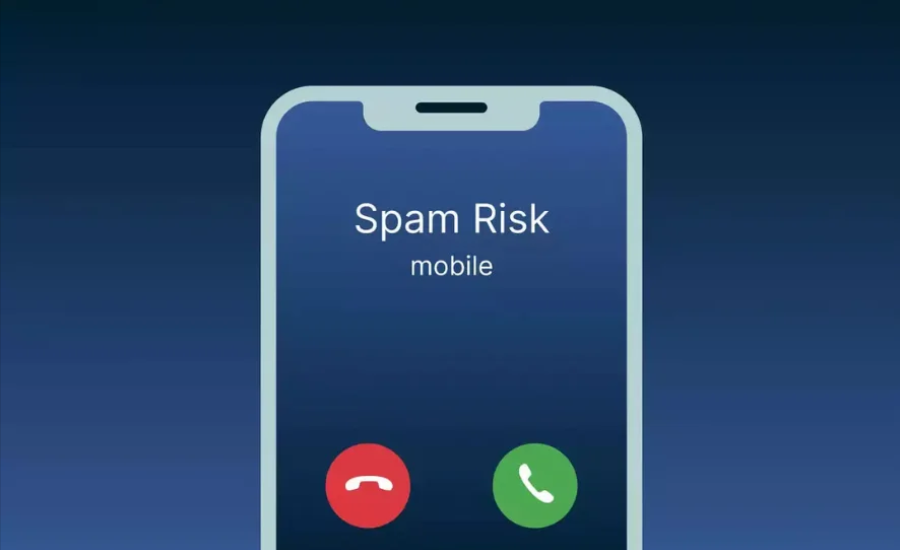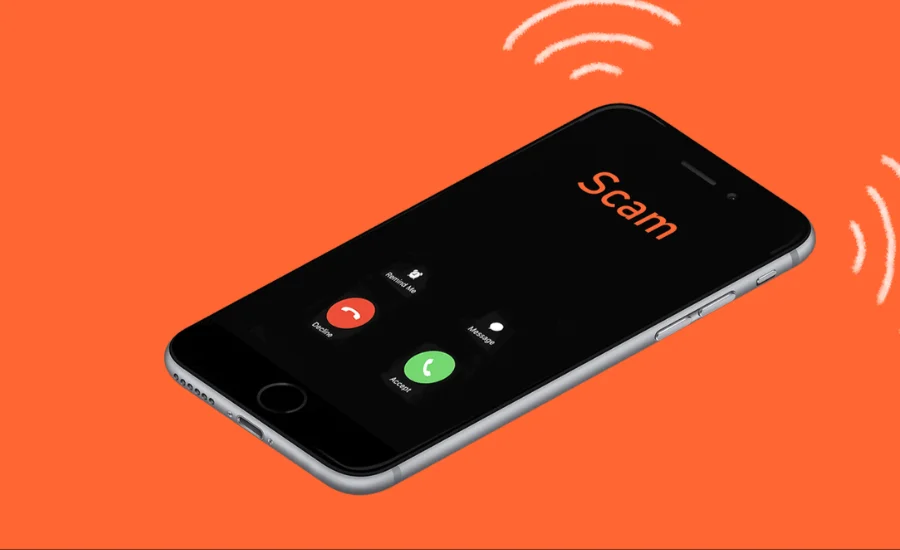1-980-390-5275: 5 Key Actions to Take if You Suspect a Scam
1-980-390-5275 In today’s digital age, scam calls have surged, causing significant frustration and financial harm to many. If you’ve received a call from the number 1-980-390-5275, you’re not alone; countless individuals are facing similar challenges from these fraudulent activities.
Scammers often employ deceptive tactics, posing as legitimate companies or fabricating convincing stories to extract personal information or money from unsuspecting targets. The number 1-980-390-5275 exemplifies the kind of number commonly associated with these illicit schemes.
To protect yourself, it’s essential to stay informed about these scams and recognize the warning signs. By understanding how these calls operate, you can better safeguard your personal information and financial well-being. Always approach unexpected calls with caution, and remember that if something seems too good to be true, it likely is.
Recognizing Phone Fraud Tactics

Understanding phone fraud is vital for safeguarding yourself against potential scams. Scammers utilize a variety of deceptive strategies to exploit victims effectively.
One common tactic is impersonation, where they present themselves as representatives from reputable organizations, government bodies, or even acquaintances. By creating a false sense of familiarity, they aim to gain your trust and manipulate your responses.
Another prevalent method involves instilling a sense of urgency or issuing threats. These calls often pressure individuals into taking immediate action, such as divulging personal details or making payments, by suggesting dire consequences if they fail to comply.
Additionally, scammers may lure victims with offers that seem too good to be true. These schemes often promise enticing rewards or prizes, but they typically require an upfront payment or the sharing of sensitive information to claim the benefits.
Staying vigilant and informed about these tactics is essential for protecting yourself from phone fraud. Always verify the identity of the caller and approach suspicious offers with caution.
Protecting Yourself from Scam Calls
To protect yourself from scam calls, such as those from 1-980-390-5275, it’s essential to adopt effective strategies.
Start by verifying the identity of any caller you find suspicious. If you have doubts about the legitimacy of the call, reach out to the organization directly using their official contact information. This helps ensure you’re communicating with a trustworthy source.
Be cautious about sharing personal or financial information. Refrain from disclosing sensitive details to unknown callers, as this information can be misused.
Consider utilizing call-blocking technology to filter out potential scam numbers. Many smartphones and apps offer features that can help you avoid unwanted calls, providing an extra layer of security.
Lastly, if you receive a suspicious call, report it to the appropriate authorities or your service provider. By doing so, you contribute to the fight against phone fraud and help protect others from falling victim to similar scams.
By staying vigilant and informed, you can significantly reduce your risk of falling prey to these fraudulent activities.
Evolving Tactics of Scammers
Scammers have become increasingly adept at leveraging technological advancements to enhance their deceptive practices. With modern technology, these fraudsters can spoof phone numbers, creating the illusion that their calls are coming from trustworthy sources. The number 1-980-390-5275 is a prime example of this strategy, representing one of many numbers scammers use to trick individuals into disclosing personal information or sending money.
This manipulation makes it essential for individuals to remain vigilant. By being aware of these sophisticated tactics, you can better protect yourself against falling victim to scams that exploit technology to gain your trust. Understanding how these scams work is a crucial step in safeguarding your personal and financial information.
The Dangers of Phone Number Spoofing
Phone number spoofing is a deceptive tactic where scammers manipulate caller ID information to make their calls appear as if they originate from a trusted source. This practice is particularly alarming because it fosters an initial impression of legitimacy, causing recipients to let their guard down.
By altering caller ID details, fraudsters can convincingly impersonate reputable organizations such as banks, government agencies, or well-known corporations. This fabricated trust can significantly increase the chances of individuals engaging with the caller and divulging sensitive personal information or making unauthorized financial transactions.
The proliferation of phone number spoofing technology has dramatically contributed to the surge in scam calls. As scammers refine their techniques, distinguishing between legitimate and fraudulent calls has become increasingly challenging for the average person. This technology not only erodes trust but also poses a significant risk to personal and financial security.
Recognizing the realities of phone number spoofing is vital for self-protection. By understanding this tactic, individuals can remain cautious and skeptical of unexpected calls, regardless of whether they appear to come from a familiar or reputable number. Awareness is your first line of defense against these sophisticated scams.
The Vulnerability of Personal Information in a Digital Age
In today’s digital landscape, personal information is more exposed and accessible than ever before. Scammers have become highly skilled at collecting this data through various means, such as data breaches, social media platforms, and other online channels. These breaches frequently involve sensitive details, including phone numbers, email addresses, and even more comprehensive personal information. The widespread availability of this data empowers fraudsters to create targeted and persuasive scam calls, such as those originating from the number 1-980-390-5275, making their tactics more effective and difficult to identify.
The ease with which scammers can access personal information greatly enhances their ability to personalize their methods. By utilizing data obtained from online sources, they can customize their calls to seem more credible and relevant, thereby increasing the chances of successfully deceiving their targets. This practice not only facilitates scammers’ efforts to reach individuals but also complicates the task of distinguishing between legitimate and fraudulent communications.
Understanding this vulnerability is crucial in navigating today’s digital environment. Staying informed about how personal information is used by scammers can help individuals remain cautious and better protect themselves from potential fraud.
The Financial Motivations Behind Scam Calls

The surge in scam calls can be largely attributed to the significant financial incentives they provide for criminals. Scammers target victims by convincing them to share personal information, make payments, or engage in other financial transactions under misleading pretenses. The potential monetary rewards from these scams can be substantial, especially when considering the vast number of individuals they may exploit.
The low risk associated with scamming, paired with the high rewards, makes this fraudulent activity appealing to many criminals. Operating from a distance and often remaining anonymous, scammers typically experience minimal fear of consequences. This profit-driven motivation fuels the ongoing cycle of scam calls, as the financial gains consistently outweigh the perceived risks for those involved in such deceptive practices.
Understanding these dynamics is essential for anyone looking to safeguard themselves against scams. By recognizing how easily personal information can be exploited and the financial motivations behind these calls, individuals can enhance their vigilance and become more adept at identifying and avoiding fraudulent schemes.
Identifying Scam Call Tactics
Recognizing the common tactics associated with scam calls is essential for safeguarding yourself against fraud. When you receive a call from a number like 1-980-390-5275, being aware of the typical behaviors scammers employ can help you remain alert and avoid becoming a victim.
A frequent strategy used by scammers is to instill a sense of urgency. As soon as you answer the call, they may assert that your bank account has been compromised, there’s a serious issue with your credit card, or you owe a significant amount of money to a government agency like the IRS. The intent is to create panic and pressure you into making hasty decisions without fully considering the situation. This tactic often clouds your judgment, making it easier for scammers to exploit you.
Another common approach involves soliciting sensitive personal information. Scammers frequently request details such as your Social Security number, bank account information, or passwords. They may impersonate representatives from reputable organizations to establish a facade of legitimacy and trust. By posing as someone familiar or a trusted authority, they aim to persuade you to divulge confidential information. It’s important to remember that legitimate organizations will never ask for such personal details over the phone. Always verify the identity of the caller through official channels before sharing any information.
Recognizing Scam Call Warning Signs
Identifying the warning signs of a scam call is vital for protecting your personal information. By being aware of these red flags, you can significantly reduce your chances of falling victim to fraudulent schemes.
One key indicator is receiving calls from unfamiliar numbers, such as 1-980-390-5275. While not every call from an unknown number is a scam, it’s essential to approach them with caution. Unsolicited calls, especially from numbers you don’t recognize, should raise your skepticism.
Another major warning sign is unexpected requests for personal information or immediate payments. Legitimate organizations typically do not ask for sensitive details or financial transactions over the phone without prior interaction. If a caller insists on such information or pressures you for urgent payments, it’s likely a scam.
Scammers often lure victims with offers that sound too good to be true, such as promises of large sums of money or exceptional deals. If an offer appears overly enticing or unrealistic, it’s probably intended to deceive you.
Additionally, consider the quality of the communication. Many scam calls originate from overseas, and the scammers may lack fluency in English. Be wary of poor grammar or spelling mistakes, as these can signal a fraudulent call.
By remaining vigilant and recognizing these indicators, you can better safeguard yourself against scam calls and avoid falling prey to deceptive tactics.
Proactive Measures Against Scam Calls
Taking proactive steps can greatly diminish your chances of falling prey to scam calls. By implementing effective strategies, you can protect your personal information and reduce unwanted disturbances.
One powerful method is registering your phone number with the National Do Not Call Registry. This service significantly limits the number of telemarketing and scam calls you receive. While it won’t eliminate every unwanted call, it is an invaluable resource for minimizing such interruptions.
Utilizing call-blocking apps can further enhance your defenses. Applications like Truecaller, Hiya, and RoboKiller are designed to identify and block known scam numbers, helping filter out unwanted calls through their comprehensive databases. These tools enable you to manage incoming calls more efficiently, making it easier to avoid fraudulent interactions.
Staying updated on current scam tactics is another vital strategy. By educating yourself and sharing this knowledge with friends and family, you can strengthen your collective defenses against scam calls. Understanding the latest scams and their methods empowers you to recognize and sidestep potential threats.
Lastly, be mindful when sharing your personal information. Carefully consider where you provide your phone number and other sensitive details. Avoid posting such information on social media or entering it on unfamiliar websites, as these actions can heighten your vulnerability to scams.
By adopting these practices, you can significantly improve your ability to dodge scam calls and safeguard your personal information from fraudsters.
The Impact of Scam Calls on Telecom Users

Scam calls, such as those originating from numbers like 1-980-390-5275, can have a significant negative impact on telecom users. Understanding these effects highlights the importance of vigilance in protecting oneself from fraudulent schemes.
One of the most alarming consequences of scam calls is financial loss. Victims are often deceived into providing sensitive banking details or making payments, leading to unauthorized transactions that can severely damage their financial stability. The repercussions of these scams can range from drained bank accounts to considerable economic hardship for those targeted.
In addition to financial implications, scam calls can inflict emotional distress on victims. The intimidation tactics employed by scammers can generate high levels of stress and anxiety. Many individuals may experience feelings of vulnerability and fear, which can adversely affect their overall mental health.
Moreover, the prevalence of these fraudulent calls can undermine trust in legitimate phone communications. As people encounter more scam calls, they may develop a heightened sense of caution, leading to distrust of unfamiliar numbers—even when they originate from reputable sources. This erosion of trust can disrupt everyday communication and create unnecessary barriers between individuals and legitimate organizations.
Recognizing these impacts emphasizes the necessity of remaining informed and cautious when faced with unknown or suspicious calls.
Responding to Suspicious Calls
Receiving a call from an unfamiliar number like 1-980-390-5275 can be concerning, and it’s essential to take prompt action to safeguard yourself. Here’s how to navigate these situations effectively.
If the number looks unfamiliar, it’s best not to answer the call. However, if you accidentally pick up and realize it’s a scam, hang up immediately. Engaging with the caller may lead to persistent harassment and increase the chances of falling victim to their schemes.
To minimize future risks, utilize your smartphone’s call-blocking feature to prevent further communication from the suspicious number. This action helps ensure that you won’t receive additional calls from that source, significantly reducing the likelihood of ongoing harassment.
Reporting the suspicious call is equally important. This action aids authorities in tracking and potentially dismantling scam operations. Many phone carriers also offer mechanisms to report scam calls directly, which contributes to broader efforts to combat these fraudulent activities.
If you’ve disclosed any personal information during the conversation, closely monitor your bank accounts and credit reports. Be vigilant for unauthorized transactions or any unusual activity, and report such issues to your financial institution as soon as possible. Regularly checking your accounts can help you identify and address potential problems early on.
Understanding Evolving Scam Tactics
Staying updated on the latest trends in scam calls is vital for safeguarding yourself against emerging threats. Scammers continually refine their techniques, making awareness essential.
One prevalent method is number spoofing, where scammers mask their actual phone numbers to make their calls appear legitimate. By using local or familiar numbers, they significantly increase the chances of victims answering. Often, these fraudsters impersonate representatives from well-known companies or government agencies, employing recognizable logos and professional language to build trust and deceive unsuspecting individuals.
Technology plays a crucial role in combating these deceptive practices. Telecom providers are now leveraging advanced machine learning algorithms to detect and block potential scam calls. These systems analyze calling patterns and user reports, identifying suspicious activities to protect consumers. Furthermore, the development of artificial intelligence chatbots is providing real-time information and guidance about current scams, helping people stay informed and cautious.
Community initiatives are equally important in the battle against phone scams. Local organizations often host educational sessions to inform residents about common scam tactics and reporting procedures. By collaborating with law enforcement, these initiatives aim to create a safer communication environment and empower individuals with the knowledge needed to defend themselves.
By remaining vigilant about emerging scam techniques and utilizing available technological resources, individuals can enhance their defenses against fraudulent calls and contribute to a more secure and informed community.
Real-Life Lessons from Scam Calls
Understanding real-life encounters with scam calls can provide valuable insights into the importance of vigilance and the effectiveness of protective measures. Here are a few illustrative cases that showcase common scam tactics and the proactive steps individuals took to safeguard themselves.
Impersonation of an IRS Agent
Jane received a call from 1-980-390-5275, with a caller pretending to be an IRS agent. The caller claimed she owed back taxes and threatened legal action if she didn’t pay immediately. Recognizing this as a potential scam, Jane refrained from sharing any personal information and hung up promptly. She then reported the incident to the Federal Trade Commission (FTC) and blocked the number to prevent any further contact.
Phishing Attempt Targeting Bank Accounts
John answered a call from 1-980-390-5275, during which the caller alleged that his bank account had been compromised. The scammer requested his account details to “verify” his identity. Sensing something was off, John declined to provide any information and opted to contact his bank directly. This decision proved wise, as he learned his account was secure, thus avoiding potential financial loss by verifying the situation through the proper channels.
The Prize Money Scheme
Sarah received a call from 1-980-390-5275, informing her that she had won a substantial cash prize. However, to claim her winnings, she was instructed to pay a processing fee upfront. Recalling advice about such fraudulent schemes, Sarah wisely chose not to make any payment. She reported the scam call to her phone carrier, contributing to efforts to prevent others from falling victim to similar tactics.
These case studies illustrate the importance of skepticism and proactive measures when faced with suspicious calls. By learning from the experiences of others and exercising caution, individuals can enhance their ability to protect themselves from scams.
Final Words
In our increasingly digital world, scam calls have become a prevalent issue, with numbers like 1-980-390-5275 emerging in various fraudulent activities. Scammers often pose as representatives of legitimate organizations or fabricate urgent situations to manipulate individuals into revealing personal information or making unwarranted payments.
To effectively protect yourself from these scams, it’s crucial to remain vigilant and informed. Always verify the identity of the caller through official channels before taking any action. Be cautious about sharing personal details with unknown callers, as this can lead to identity theft or financial loss. Additionally, consider using call-blocking technology to filter out suspicious numbers and minimize the risk of such calls.
Got it! Here’s the last line tailored for your website, Blog Blower:






